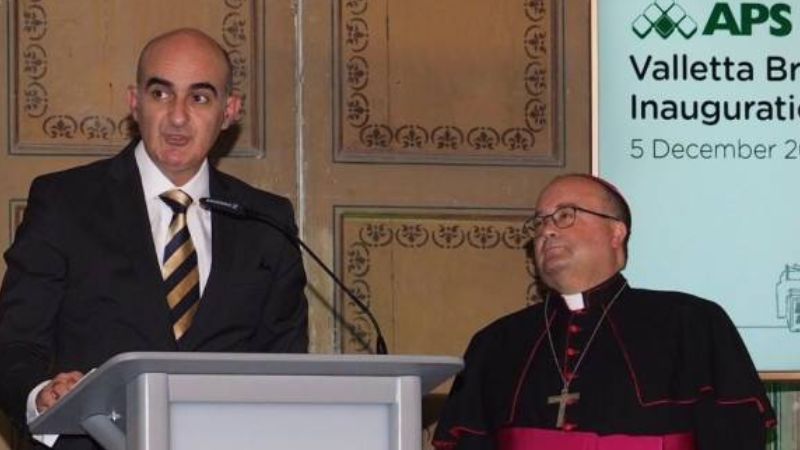Malta’s second-largest bank, HSBC, is keeping APS’ aspirations at arm’s length as doubts over a possible deal between the two continue to increase.
In a company announcement, HSBC declared that it is continuing with its programme to find a buyer for its bank but made it clear that there is no preferred buyer, an indirect reference to the Church’s bank, APS.
“The bank has been informed by HSBC Holdings plc that there is no preferred offeror and that the process remains at an early stage.”
HSBC also emphasised that “any potential transaction would require regulatory approval from both the MFSA and the European Central Bank (ECB), a process that would be expected to take several months from entry into a binding agreement.”
The Shift has already reported that in the unlikely scenario where APS can find the necessary funds to buy HSBC or part of it, the MFSA and the ECB are likely to block the deal as it is not considered to be in Malta’s banking and economic interests.
According to experts, while APS does not have the financial strength to buy HSBC without any extraordinary concessions from the larger bank, a decision to have two large banks instead of three restricts competition and is not beneficial to the Maltese economy.
The situation has become even more complicated recently, as APS has announced a 20% decrease in profits compared to the previous year.
Speculation over the APS bank’s interest in buying HSBC was leaked to the press last September when it was revealed that the Church-owned bank had been discussing the possibility for almost a year without making any company announcement, as required by law.
It was only after speculation increased, along with APS’s share value on the stock exchange, that the Church-owned bank confirmed that it was interested in the deal.
Despite strong backing from APS CEO Marcel Cassar and Archbishop Charles Scicluna, some within the Church oppose the acquisition, arguing that expanding into a major economic role is not aligned with the Church’s mission.
The Maltese government is also understood to be informally opposed to the deal, although it has no direct authority over the transaction.
HSBC’s departure will leave Malta without a banking institution of international repute, potentially hindering the country’s ability to attract foreign investment.
Malta’s banking sector already suffers from limited competition, with interest rates rarely reflecting international trends. Experts warn that reduced competition could further exacerbate these challenges.
Banking sources indicate that HSBC has been trying to exit Malta for years but has struggled to find a foreign buyer.
The ECB has previously intervened to block similar acquisitions, such as its 2016 decision to prevent UBI Banca from acquiring Banca Popolare due to concerns about competition and financial stability in the region.
The ECB’s role in such cases aligns with its broader mandate to ensure the stability of the European banking system while maintaining competitive markets within the Eurozone.













